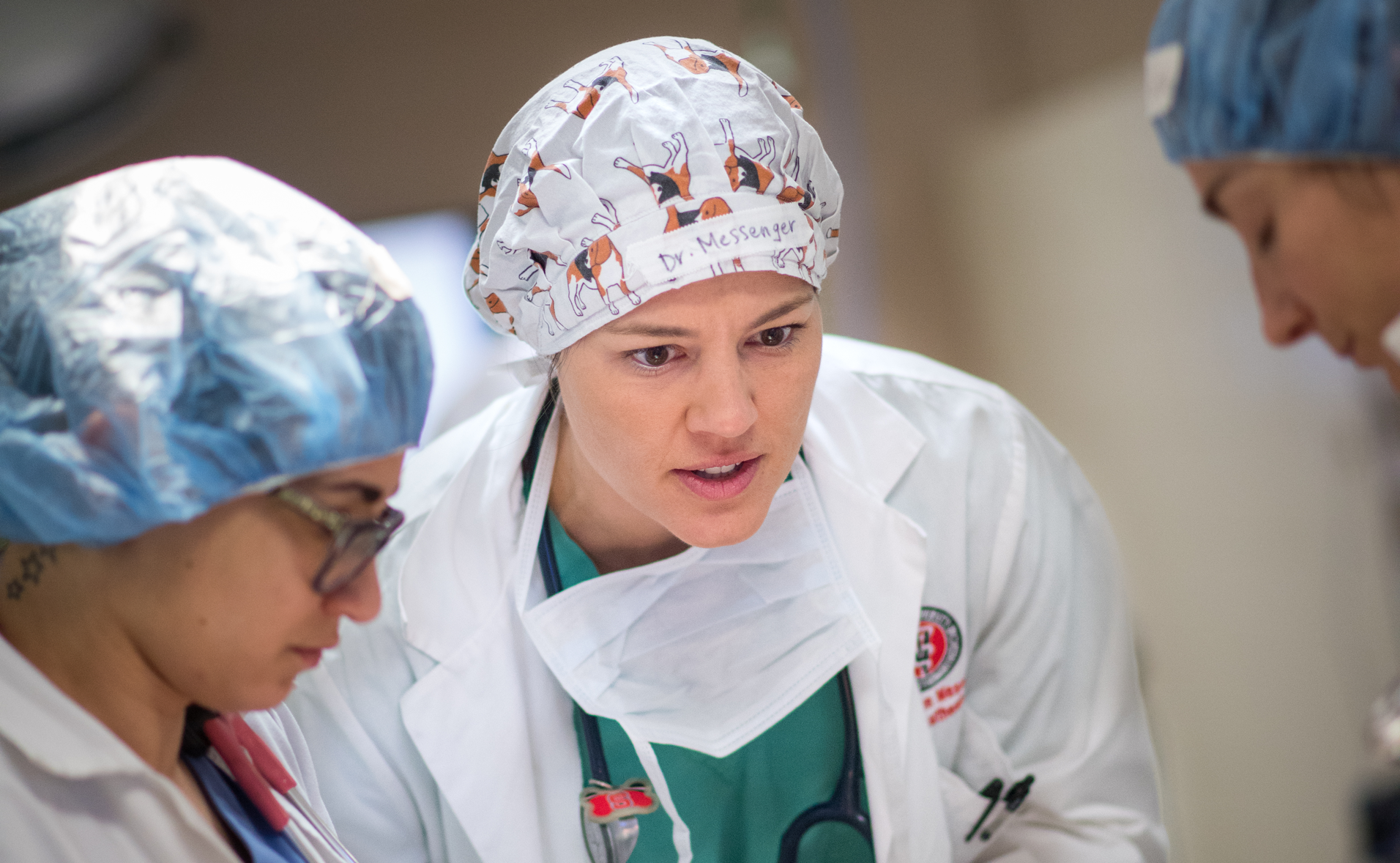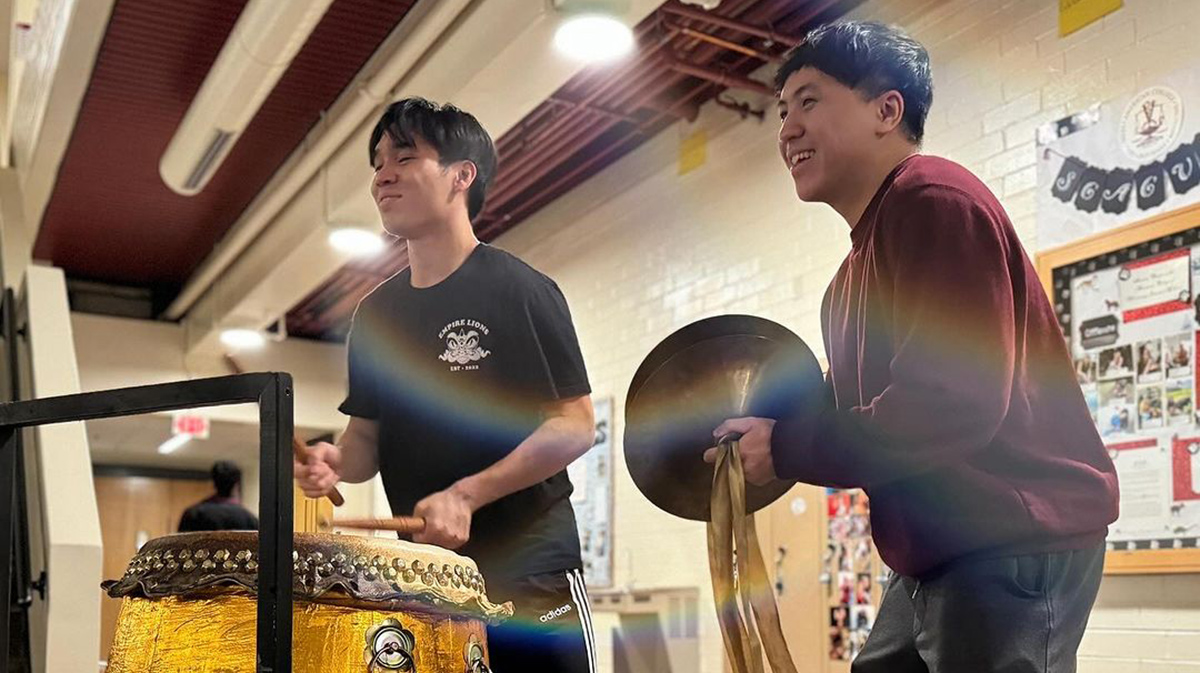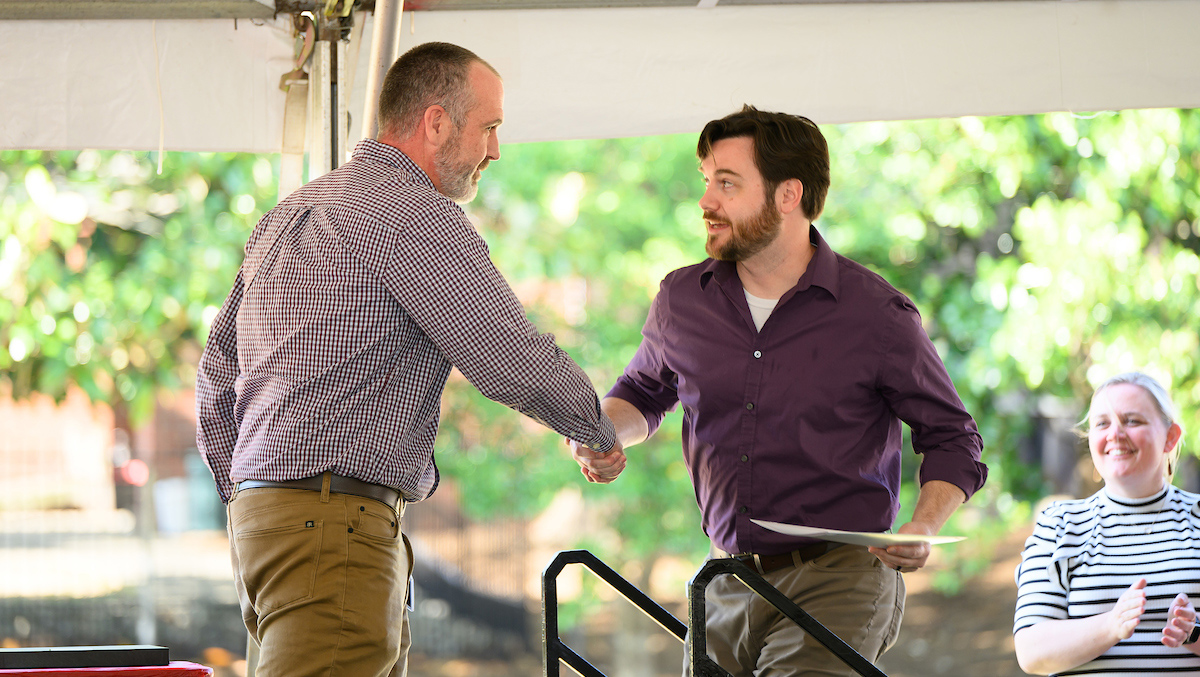Messenger Honored with SAVMA Teaching Excellence Award

From the first day of class, Sara Tufts knew that Kristen Messenger would be unlike any teacher she ever had.
An unrestricted enthusiasm carried her voice. She made eye contact. For an early morning class with heavy material — anything and everything pharmacology — Messenger was downright upbeat. The positivity was palpable. It was genuine.
Here was someone, Tufts knew, who deeply loves her work and the subject matter she gets to share with students.
“I said, ‘Wow,’” Tufts said. “She came out from the podium, stood close to us, looked at us all. When we had a question, she knew our names. You wanted to make sure you were there. You wanted to answer her questions. You wanted to get into it.”
Teaching isn’t Messenger’s only thing, but it’s her everything.
That’s why Tufts, a second-year DVM student, nominated the NC State College of Veterinary Medicine assistant professor of pharmacology for the Teaching Excellence Award from the Student American Veterinary Medical Association. And it’s why she won.
“It’s really one of the most meaningful things that has happened to me,” said Messenger of the honor. “I was blown away, floored.”
Messenger helms a difficult course in what’s a particularly demanding second year of veterinary school. It’s when students transition into courses that go deep into clinical medicine and stay there — the first classes they take with direct clinical applications.
Messenger’s class covers all aspects of clinical pharmacology, a mix of basic science with clinical applied science. There’s a seemingly endless stream of drug names to know, treatment protocols to master and case studies to thoroughly examine. A lot of it is material students have never seen before. It’s a lot, it’s tough and Messenger knows it.
“It’s so challenging, but it’s so important,” said Messenger. “Pharmacology and therapeutics are part of practically every aspect of veterinary medicine.”
Messenger’s deft teaching touch somehow hammers home the seriousness of the information while maintaining a charisma that encourages student engagement. She doesn’t talk to her students, she talks with them. She hosts pre- and post-exam reviews that last as long as her students need them to. Whenever students email her or drop by her office, they are her priority in that moment.
“Her openness makes asking questions extremely easy,” wrote Tufts in her nomination letter, “and chatting with her after class even easier.”
One of Messenger’s unique teaching approaches that particularly reached Tufts is “Passing Gas,” a podcast for students created and hosted by Messenger and CVM colleague Kate Bailey.
The series covers pharmacology and anesthesiology topics with remarkable relatability, humor and honesty. It slyly reviews course material with conversational ease, and Messenger and Bailey share personal stories about their own veterinary experiences. Tufts has listened to every podcast episode while walking her dogs.
“The reason I’m here is because of the teaching,” said Messenger. “I’m a vet. I’m a clinician. I’m a specialist. More typical would be going into private practice. But being able to teach students of all levels is why I’m here. It’s so rewarding.”
It helps that Messenger once sat in the same seats as her students. She earned her bachelor’s degree in animal science from NC State in 2002, graduated from the CVM in 2006 and then completed her residency in anesthesia at the NC State Veterinary Hospital in 2010. She completed her graduate work in pharmacology here as well. In 2015, she was named an assistant professor.
While as a CVM student, Messenger found professors whose teaching style — and ability to forge personal connections — she emulates today. One was Cliff Swanson, an anesthesiologist with whom Messenger first talked about her desire to teach one day. When she was a resident, she asked him if she could help teach students during hospital rounds and also during his course.
He let her give the first lecture on the first day of class.
Messenger’s commitment to students — from the second years taking her clinical pharmacology course to the fourth-years she oversees while on hospital rotation training — and lively engagement especially impresses Bailey, her podcast co-host and a fellow CVM alum-turned-faculty member.
“Dr. Messenger is a very effective teacher for many reasons, but the factor that ties it all together is her student-focused approach,” said Bailey, clinical assistant professor of anesthesiology. “She is thoughtful and smart about her teaching style and material … and does everything possible to constantly improve her approach to the process.”
That includes still taking classes herself. She continues to enroll in various veterinary education courses, including one from the London-based Royal Veterinary College, which she calls eye-opening.
“One of my mentors told me once, you’re going to know what it feels like to really be a teacher when a student understands something, when you see it click and you see them wanting to teach others,” said Messenger. “And it will be a moment you’ll never forget.
“And they were right. It’s the best.”
~Jordan Bartel/NC State Veterinary Medicine


